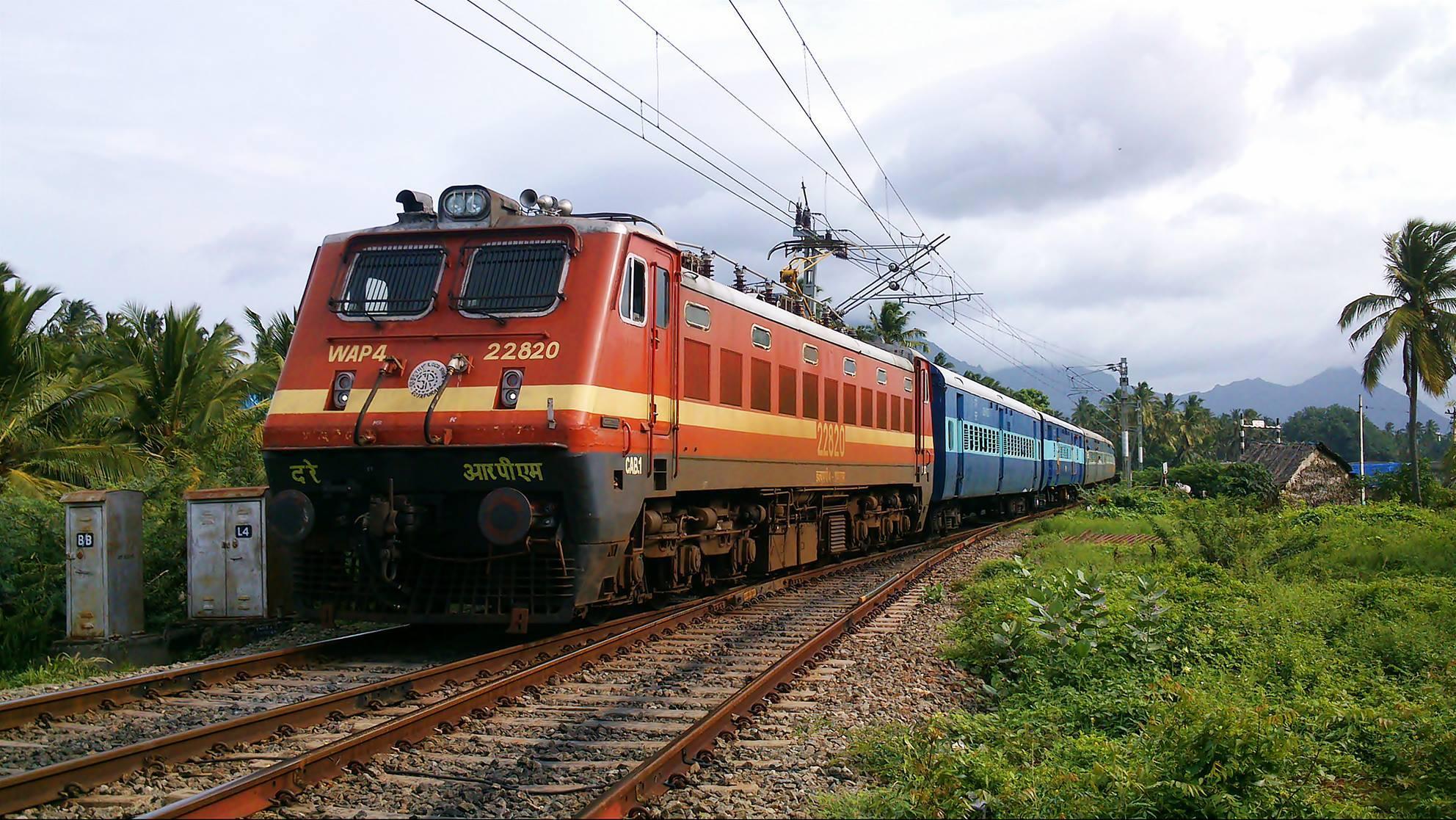Indian Railways has set an ambitious target of becoming Net Zero Carbon Emitter by 2030 and as part of Government’s Nationally Determined Contributions (NDCs), is aiming at a 33% emissions intensity reduction, with the transport sector being one of the key sectors with substantial mitigation potential.
Indian Railways has a major role in contributing to India’s NDC towards combating Climate Change through several means and plans to enhance its share in the overall land based freight transport from present 36% to 45% by the year 2030.
It is setting up Dedicated Freight Corridors (DFCs) across the country and the first phase of the project alone is estimated to reduce emissions by about 457 million tonnes CO2 over a 30-year period.
As part of the plan, Railways seeks to increase the share of renewable energy in its energy mix and would work to further improve its energy efficiency for both diesel and electric traction thereby facilitating the reduction of GHG emissions for the country. PAT Scheme would also be implemented in railway sector.
Use of 5% blending of biofuels in traction diesel fuel, improve water use efficiency by 20% up to 2030, tree plantation to increase Carbon sink and adopting the good practices on Green Buildings, Industrial Units and other establishments for the management of resources and infrastructure to achieve Environmental Sustainability in growth of IR are part of the plan.
It has set a target of becoming a net-zero entity by 2030 by completing electrification of all railway tracks. Indian Railways has taken steps to streamline its initiatives with regards to environmental management, with some notable initiatives including Energy Efficiency Management, Renewable and Alternate sources of Energy, Water conservation, Afforestation, Water Management and Green Certifications, officials said.
Railways will attempt to reduce its carbon footprint primarily through sourcing of its energy requirements from renewable energy sources. By 2029-30, expected requirement of installation of renewable capacity would be about 30 GW. It has installed 142 MW solar rooftop capacity and 103.4 MW of Wind energy till August 2022.
Other strategies towards Net Zero emitter includes taking a multi-pronged approach of Electrification of its routes, shifting from diesel to electric traction, promotion of energy efficiency, construction of Dedicated Freight Corridors, Green certification of Railway Establishments. It has electrified 52,508 RKM out of total BG network of 65,141 RKM (80.61%). With 100% electrification, the demand for electricity will go up to about 72 BUs by 2029-30 from 21 BUs in 2019-20. Carbon emission by 2029-30 as per Business As Usual mode is estimated to be 60 million tons which would be offset by various measures planned.
Water Policy 2017 has been issued to all Zonal Railways and Production Units for implementation in railway stations, trains, railway colonies. This is a part of overall efforts to achieve 20% reduction in water consumption by 2020 as part of NDC. Main objective of this policy are to improve water use efficiency by effective demand and supply management, installing water efficient systems and setting up Water Recycling Plants on railway land.
Afforestation on vacant railway land and in between sections is being carried out departmentally and it has been planting around one crore trees annually since 2017 onwards. 72 lakh saplings have been planted during the year 2021-22.
Waste to energy, compost, biogas plants, material recovery facility have been set at more than 250 stations to manage waste. Separate bins have been provided for dry and wet waste for waste segregation at source. Around 700 Railway Stations have been certified for implementation of Environment Management System to ISO:14001 More than 545 stations have achieved Consent to operate (CTO) from respective State Pollution Control Board and 31 railway buildings (including offices, training institutes, hospitals and schools), 32 stations and 55 workshops/PUs have achieved green certification.
Environment-friendly bio-toilets for passenger coaches have been developed by Indian Railways jointly with Defence Research & Development Organization (DRDO) and 9,587 bio-toilets were fitted in 3,647 coaches up to March 2014. With the installation of 2,58,990 bio-toilets in nearly 73,110 coaches up to March 2021, the work of fitment of bio-toilets in all the passenger carrying coaches, running on Indian Railways has been successfully completed.


























